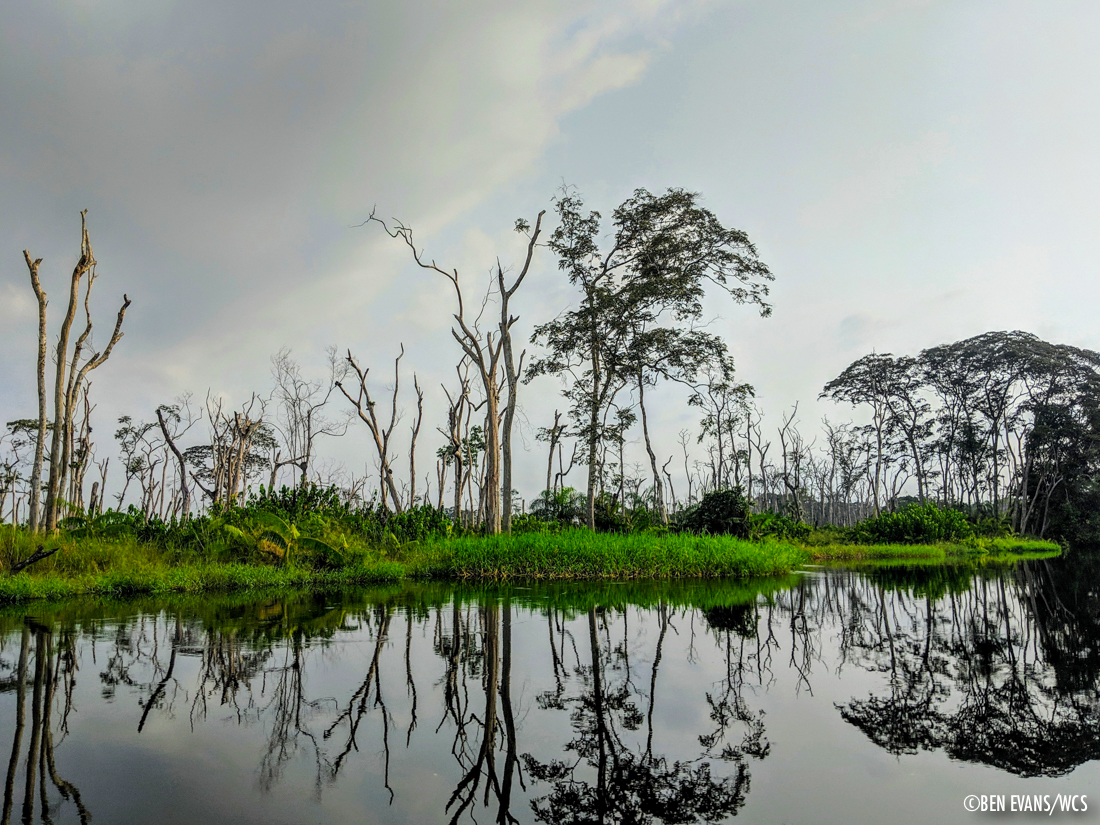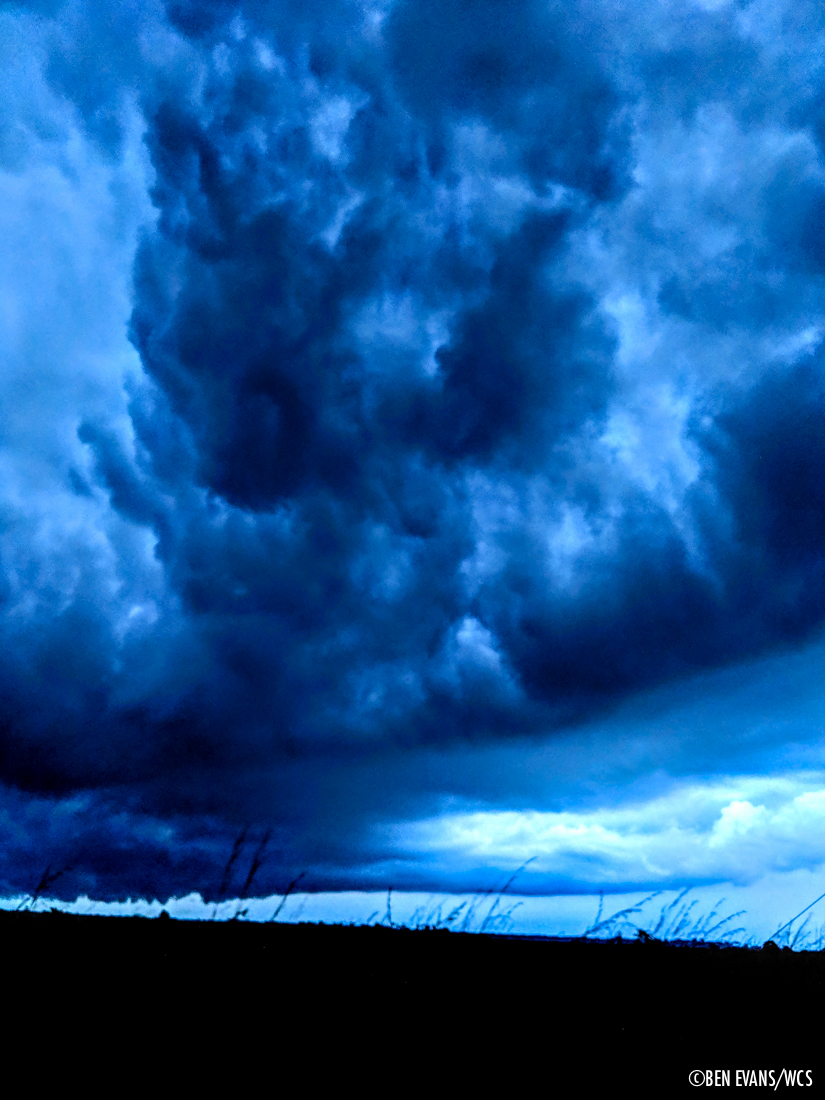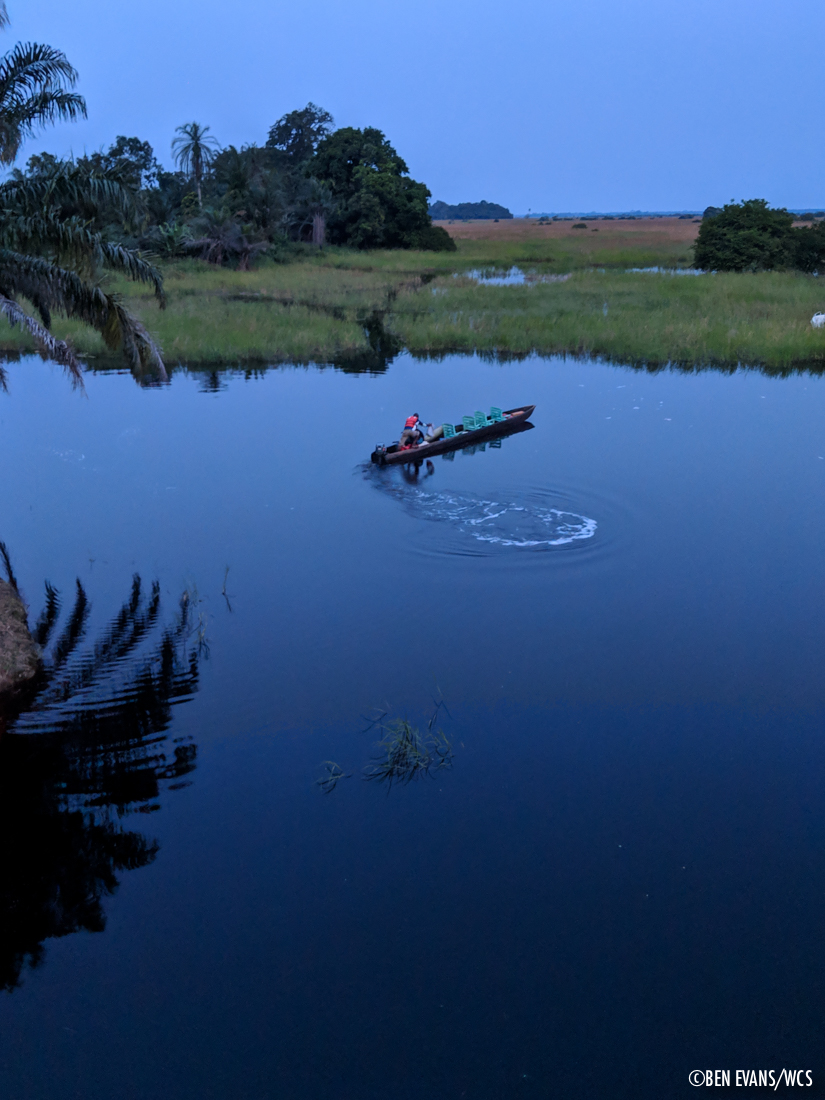If the Fish Don’t Come
The wet season in northern Congo is a powerful thing to witness. Torrential rain can fall continuously for several days. Roads turn into sliding mosaics of water and mud. Rivers small and large swell up, rising so quickly you can almost see it. The air is heavy and people dash between houses in the brief dry spells.
This rain, whilst putting a dampener on barbeque prospects, is a vital replenishment for the forest, its wildlife and the people who depend on it. In the flooded forests that make up much of the Lac Tele Community Reserve, the rains push water into the furthest reaches of the forest. With them come huge migrations of fish, following the rising water into the forest to spawn in its pools and streams. Fish are central to life in Lac Tele, for food and income. So much so that there is a local saying amongst the area’s main ethnic group, the Bomitaba, that ‘a Bomitaba hasn’t eaten unless he’s eaten fish’. The rains are vital in driving the floods which keep the fish stocks afloat.
A storm builds over the Lac-Tele Community Reserve, as the park’s boat heads for cover before the rain starts to pour down.
You only needed to walk down to the water’s edge behind the Lac Tele headquarters every morning to see a group of staff eyeing the water level and discussing how much the water has changed since yesterday. In December, people walked back to base shaking their heads. The rainy season hadn’t been as strong as usual, meaning much of the seasonally flooded forests remained dry. Talk in Epena, the reserve’s main village, is how difficult the coming season would be – January to March is normally the most profitable time of the year, when fish are abundant and food and money flows through these isolated communities. There are an estimated 3000 households who fish ‘professionally’ in the Reserve and several thousand more who rely on fishing for subsistence. Unpredictable rainfall means thousands of families will face uncertain conditions for the next year.
Now, in March, these fears have borne fruit. Reserve teams coming back from the field report that fishing camps, normally buzzing with activity at this time of year, are emptying already, fishermen are struggling to make ends meet and there is a lack of fish in the markets. Those that have carried on are using increasingly more equipment to chase after fish; studies in East Africa found that, even as fish stocks decrease, fishers often increase effort to make up income and investments. This risks a perfect storm for fish stocks; a poor breeding season and then heavier harvests on the remaining fish.

Ask people why this is happening, and the answer is direct: “Climate change”. They respond that the seasons they rely on have been increasingly unpredictable, that planting of crops, fishing and other activities have been harder and harder to plan. This seasonal rhythm also plays a vital role in giving the ecosystem time to recover. For example, flooding during the wet season makes some areas less accessible, potentially providing a refuge for wildlife to breed. Huge carbon stocks, part of the largest tropical peatland in the world, may also rely on the flooding to maintain the peat’s integrity.
Some fishermen are obliged to switch activities, going after dwarf crocodiles, a commonly harvested and eaten species in the area. These too, are impacted by unpredictable water levels; hunters in a village in the reserve reported that the lower water levels in the wet season meant unusually easy access to crocodile burrows, potentially meaning more were caught last year. Now they face heavier harvests as fishers unable to earn income from fishing move back to crocodile hunting. WCS has started a study to better understand their economic and subsistence use by people living in the reserve. Initial results suggest that lower water levels in late December meant harvests were much easier for hunters, potentially leading to higher offtakes. In November and December alone an estimated 700 crocodiles, amounting to 30,000 USD, were exported from the reserve.
Facing the unpredictability that climate change brings will require a bold, collaborative effort between hunters, fishers, NGOs and government if Lac Tele’s extraordinary ecosystems are to be conserved. The first step is to understand the impacts and outcomes of climate unpredictability on key resources. WCS will be working with fishers, hunters, community leaders and government to examine harvests, identify climate-adaptive solutions and build resilient, locally-focused systems of governance.



